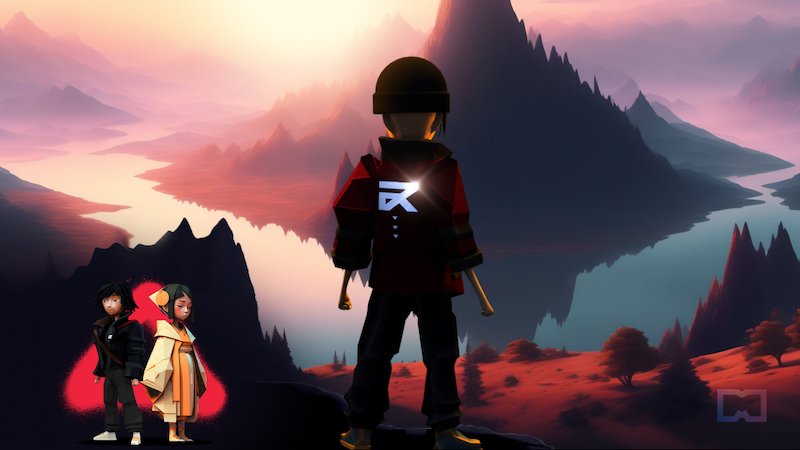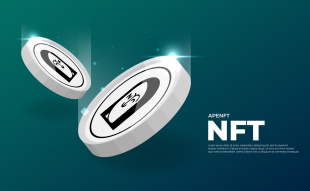Join Our Telegram channel to stay up to date on breaking news coverage
The blockchain gaming sector, still in its infancy, has been going through many transformations and challenges in the last 2 years. Many games in this industry have either ceased development or have been put on hold by their creators. Additionally, there’s a trend of these games switching to different blockchain networks.
In a recent report by Game7, a decentralized autonomous organization (DAO) that advocates for blockchain gaming, it’s noted that the industry saw 157 blockchain games halt development in 2022 and an additional 43 in 2023. George Isichos, a key contributor at Game7, pointed out that many of these games, particularly those established pre-2021, struggled financially, leading to their development being stopped.
Game7 is excited to share our State of Web3 Gaming Report 🚨
Take a deep dive into –
🎮1,900 Blockchain Games
💰1,000 Funding Rounds
🧩170 Ecosystems
📅 2018 to October 2023Insights on –
🔺Fundraising
🔺Competitive Dynamics
🔺Blockchain NetworksAnd much more!
Let’s… pic.twitter.com/oFLz9UcadP
— Game7 DAO (@G7_DAO) November 13, 2023
The financial aspect is a critical factor in the challenges faced by blockchain games. Most of these games come from small studios, with larger “AA” or “AAA” studios, defined by Game7 as those with funding above $10 million and $25 million respectively, being less affected. Despite this, the bulk of Web3 games are still indie projects, with 42% classified as such, developed by small teams or individuals without major financial backing. In contrast, only 5% and 1% of blockchain games fall into the “AA” and “AAA” categories, respectively.
We need to take into consideration, however, the fact that the entire crypto industry has been in a bear market. This has affected all sectors, not just the Web3 sector.
The blockchain gaming landscape is also becoming more competitive due to the increase in the number of gaming-focused blockchain networks, which rose from 37 in 2022 to 53 in 2023. This has led to more developers switching chains. A significant portion of blockchain games, about 81%, still operate on non gaming-focused layer-1 blockchains like Ethereum’s mainnet, but many are now opting for Ethereum-compatible sidechains or scaling networks.
The Most Popular Networks for Blockchain Games
The Ethereum Virtual Machine (EVM) is the most preferred network for blockchain games, used by 74% of them, with Solana’s virtual machine following at a distant 10%. In 2023, the most used networks for blockchain games are Ethereum sidechain Polygon, followed by Binance’s BNB Chain, Ethereum’s mainnet, Solana, Immutable, Avalanche, and Arbitrum.
2023 marks a significant year for game migrations within the blockchain space. A total of 65 games have switched networks, a noticeable increase from the 48 in 2022. Games are primarily migrating to networks like Polygon, Immutable, and Arbitrum, with 60% of the games moving from a layer-1 to a layer-2 network.
The reasons for these migrations vary. For instance, Reinhardt Weyers, the indie developer of “Untitled Platformer”, moved his game from BNB Chain to SKALE, a gasless chain, leading to increased player engagement.
Similarly, games like “Mighty Action Heroes” and “Pirate Nation” moved from Polygon’s Ethereum side chain to Arbitrum Nova due to scaling issues and high operational costs on the Polygon network. Amitt Mahajan, CEO of Proof of Play, the developer of “Pirate Nation”, said in an interview that this move was necessitated by the high costs on Polygon reaching thousands of dollars daily in transaction fees.
Pirates, we've been heads down preparing a number of massive upgrades to Pirate Nation, and the @ProofOfPlay game suite.
The first of which is ready to be revealed:
We are delighted to announce our migration to @Arbitrum Nova. 🥳
1/4 pic.twitter.com/befQBE8QrB
— Pirate Nation (@PirateNation) March 21, 2023
In September, Proof of Play announced they had secured $33 million in funding to develop new games that are different than the old “play-to-earn” gaming concept. By showcasing Pirate Nation as a “Forever Game”, Proof of Play highlighted its capability to function autonomously, independent of external servers or creator intervention.
Arbitrum vs Polygon
For those not familiar with these technologies, Polygon and Arbitrum, both scaling solutions for Ethereum, offer distinct approaches and features in their network designs, catering to different needs within the blockchain ecosystem.
Polygon, previously known as Matic Network, operates as a multi-chain system. It’s primarily a sidechain that runs alongside the Ethereum main chain, offering a framework for building interconnected networks. One of Polygon’s key features is its flexibility, allowing developers to create scalable, Ethereum-compatible blockchains with adaptable consensus mechanisms.
This flexibility facilitates a wide range of applications, from DeFi to NFTs, with enhanced scalability and lower transaction fees compared to Ethereum’s mainnet. Moreover, Polygon maintains a high degree of security through its Plasma framework and a decentralized network of Proof of Stake (PoS) validators, making it a popular choice for developers looking to balance scalability with Ethereum’s robust security model.
Arbitrum, on the other hand, is a layer-2 scaling solution that uses Optimistic Rollup technology to improve the scalability and efficiency of Ethereum transactions. Unlike Polygon’s sidechain approach, Arbitrum operates on top of the Ethereum mainnet, bundling or “rolling up” multiple transactions into a single batch.
This process significantly reduces the load on the Ethereum network, leading to faster transaction times and lower fees, while still leveraging Ethereum’s security. Arbitrum doesn’t introduce a new consensus mechanism but relies on Ethereum’s security, making it highly secure but somewhat less flexible than Polygon. This design is particularly appealing for applications that prioritize security and Ethereum’s decentralized ecosystem, while still seeking to mitigate issues related to high gas fees and network congestion.
Overall, the blockchain gaming industry is experiencing a period of flux, with financial challenges, competitive pressures, and market dynamics influencing the decisions of game developers and the direction of the industry.
Related News
- Polygon Price Prediction: Missed MATIC Cracking 12% To Top $0.92? Don’t Be Late To The Party Again With This Bitcoin ETF Presale Token With 10X Potential
- Bitcoin Breaks $30K Amid Rising Optimism Over Imminent ETF Approvals After SEC’s Ripple “Capitulation’’ – And That Indicates Boom Times For Bitcoin Minetrix
- List of the Best NFT Games of 2023
- Bitcoin Surpasses $35,000 Mark with Shorts Liquidation Totaling $114 Million
Best Wallet - Diversify Your Crypto Portfolio
- Easy to Use, Feature-Driven Crypto Wallet
- Get Early Access to Upcoming Token ICOs
- Multi-Chain, Multi-Wallet, Non-Custodial
- Now On App Store, Google Play
- Stake To Earn Native Token $BEST
- 250,000+ Monthly Active Users
Join Our Telegram channel to stay up to date on breaking news coverage


